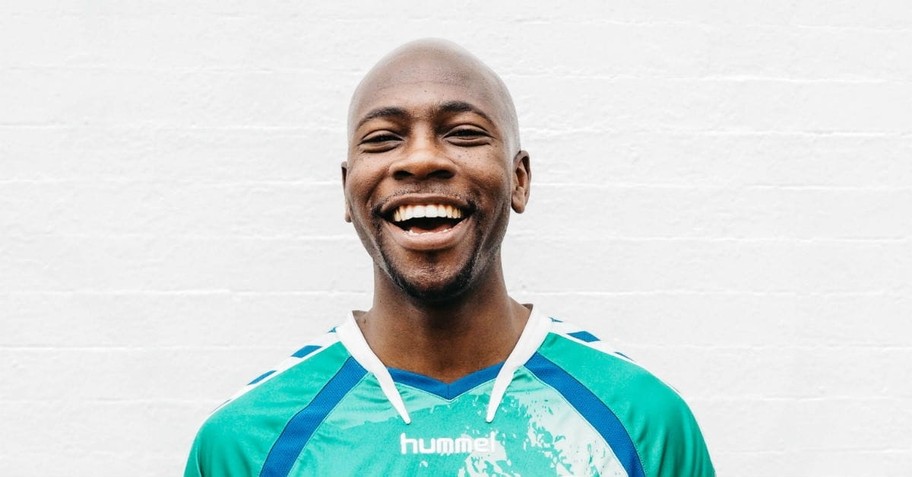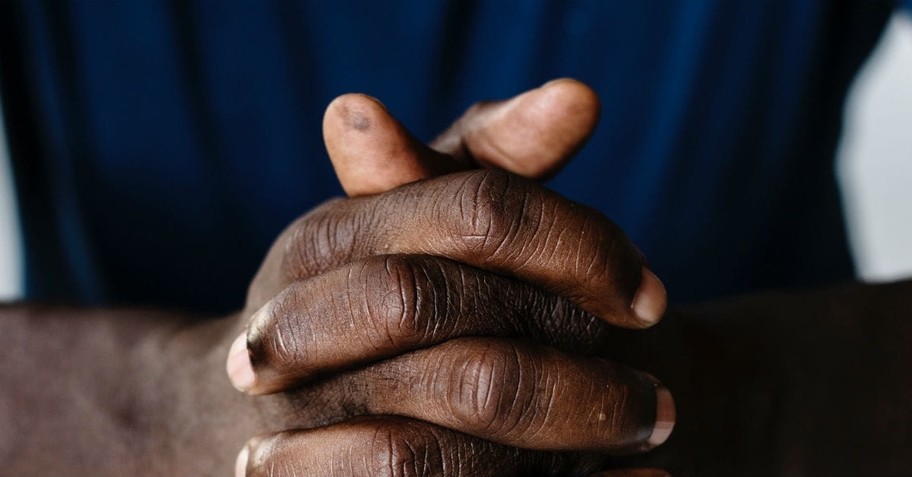Understanding where your money comes from is the beginning to living a generous life, even when you don’t have a lot of money to be generous with. I should know. While this is quite hard to admit, I am barely making enough money to sustain my own family right now. I had been working at a company for 10 years before it closed down last year – a circumstance many face today. I’m working again, but unfortunately, my new income does not come close to what it was before. Now, I am working hard to move my finances beyond a “paycheck-to-paycheck” lifestyle.
During all of this, though, there has been one constant area of my family's life that my wife and I were certain needed to remain, no matter what’s in the bank account. It’s something that comes before you even begin to think about your own living expenses. It’s called generosity, and none of us would be here without it.
Generosity, at its core, doesn’t have anything to do with money, even though we are talking about our ability to be generous with money when you may not have a lot to be generous with. If you are someone who is barely making it with the bare minimum and do not have anything you can cut spending wise, please know that this article is for you. I will say, though, whether you are at the bare minimum, or well above in terms of income, there is an understanding about generosity that you need to learn before you can begin to use your money not only generously, but with an eternal purpose in mind.
Photo Credit: ©Unsplash/Patrick Schneider

The Importance of Being Generous
Our desire to be generous has to do with the fact that the Lord of heaven and earth is a generous God (Philippians 4:19, 2 Corinthians 8:9) and the fact that we are made in His image (Genesis 1:27). His generosity towards us began the moment He fixed the stars in the sky, separated the land from the water, and created Adam and Eve to inhabit, enjoy, and increase. He continues this generosity by allowing us the air that we breathe even though, in all accounts, we are all worthy of a swift justice due to our disobedience and sin (Romans 3:23). Instead, He gives generously of His grace, His mercy, and of Himself, not because we deserve it, but because it is in His nature to do so. Since we are made in His image, we are able to not only recognize generosity but to uphold those willing to partake in its practice.
Photo Credit: ©Unsplash/Evan Kirby

"...we are locked in an internal struggle between holding on and letting go."
The hard part to all of this is found in the way we are locked in an internal struggle between holding on and letting go. On one hand, we desire to give because it is in our very nature to do so. On the other hand, we hold on to what we have tightly because of the selfishness and fear found in sin. The remedy for this is faith and obedience to God’s Word and in the Holy Spirit's prompting for when and how we should give.
Photo Credit: ©Unsplash/Devin Edwards

Faith and Obedience
If we have the faith to believe in God and in the fact that He is truly generous to the ones made in His image (which is all of us), then we need to have more faith in the idea that He will honor and bless us in ways we could have never imagined as we seek to live like Him. His Word acknowledges that if we give, then we will receive blessings on earth, in heaven, or both (Luke 6:38, 2 Corinthians 5:10, Matthew 25:21); but we must remember that we do not give generously simply because of the blessings that follow. We give because of the example He first gave us (Matthew 10:8) and because of generosity’s ability to ready the heart of those with whom we seek to share the gospel of Christ. If we were only generous in light of what we received on earth, then anyone martyred for their faith in Christ would seem a fool. Just the opposite is so.
Photo Credit: ©Unsplash/Charles Etoroma

"...we need our actions to speak louder than our words..."
There is a saying commonly attributed to St. Francis of Assisi that says, “Preach the gospel at all times. If necessary, use words.” While there is no record of him ever writing these words, the purpose of this saying has touched many Christian’s hearts concerning the idea that we need our actions to speak louder than our words if we are to share the Gospel in a fallen and sinful world. It says that our generosity will be heard long before the message. But I’ve always had an issue with this saying because it seems to downplay the actual need to speak the truth. Yes, Jesus would show His generosity in healing the sick and feeding thousands, but John 20:30-31 says that it was with a purpose,
“Jesus performed many other signs in the presence of his disciples, which are not recorded in this book. But these are written that you may believe that Jesus is the Messiah, the Son of God, and that by believing you may have life in his name.”
His generosity preceded the gospel to show that He not only came with the Word of God but with the love of God, as well. That is the very reason for our generosity. We are seeking to help, but we know that begins within the heart of each and every person. What makes generosity so powerful is in its ability to continue through the decades as a witness of God’s love through us, no matter how small we may believe our generous act to be!
Photo Credit: ©Unsplash/Eduardo Dutra

"...God may call on us to give when we least expect it..."
You may be saying,
That’s great and all, but Jesus did all of this without the need of money. I would love to be able to perform miracles so that I could have an audience to preach, but until that time happens, I barely have enough money to feed my own children let alone give money to others in need. How can I give anything away generously?
Again, the answer to that question is found in faith and obedience. Faith in the idea that God will provide for us as we seek to help others in need (Luke 6:38), and obedience in the idea that God may call on us to give when we least expect it out of what may be all that we have. One of the greatest Biblical examples of this faith and obedience being practiced simultaneously is in the story of the prophet Elisha and the widow at Zarephath in 1 Kings 17:7-24.
Photo Credit: ©Unsplash/Tanja Heffner

God Providing in Miraculous Ways
In this story, there is a drought upon the land and Elisha is commanded by God to go to the widow of Zarephath so that she may supply him with food. Upon his arrival, he finds that she was just about to use her last bit of flour and oil to make bread for what she was certain would be her and her son’s last meal. Upon hearing this, Elisha shares this with her in verses 13-14,
“Don’t be afraid. Go home and do as you have said. But first make a small loaf of bread for me from what you have and bring it to me, and then make something for yourself and your son. For this is what the Lord, the God of Israel, says: ‘The jar of flour will not be used up and the jug of oil will not run dry until the day the Lord sends rain on the land.’”
The widow’s faith to the word of the Lord blesses her with the ability to provide for her and her son based off of her obedience to give to the prophet first. She could have used that flour and oil to make one more meal, but she gave her all, just as the widow gave her all in giving 2 mites in Luke 21:1-4, believing that God will provide for her. God provides for the widow of Zarephath in a miraculous way, but what about the widow and her 2 mites?
We know nothing of her fate except that she is held high by the Lord himself and is, to this day, held high by the church as an example of what it truly means to give in faith. She may have gone on with her life, never fully coming out of her poverty, though I have a hard time believing this myself.
Photo Credit: ©Unsplash/Tyler Nix

"How much money you have to give isn’t what defines your ability to give generously."
I’ve seen God’s generosity from others far too many times in my own life, especially during this past year, and while I know God’s goodness isn’t dictated by our own, I also know that God honors those that give (Deuteronomy 15:10, Proverbs 11:24-25, Proverbs 22:9). While I do not wish to boast, I feel it’s important to use my own experiences with being generous as a testimony to God’s goodness; both in giving and receiving.
We are a family that not only believes in giving God our first fruits but in the idea that God can do so much more with our money than we could ever imagine if we continue to understand that it’s all His in the first place. With that, we have been faithful and obedient in giving to where we believe He has asked during our last 14 years of marriage. In this past year, we received an overwhelming amount of generosity from people who want to serve Him and feel that we have been placed on their heart as a recipient to God’s generosity. He makes it all work even when it shouldn’t make sense; on paper or in practical purposes!
How much money you have to give isn’t what defines your ability to give generously. It’s based on heart. Your obedience to God and your faith in His providence is what defines your ability to give generously. Knowing the difference between giving in compassion or in compulsion is where your responsibility as a steward comes in.
Photo Credit: ©Unsplash/Justin Veenema

Giving with Compassion Instead of Compulsion
The difference between giving in compassion and giving in compulsion comes from proactively saying that the money you have is God’s. It’s when you decide to stop giving to God what you have leftover and look at your finances from the perspective that it all belongs to Him. He will be the one in charge of guiding you on how to use it.
Instead of saying, “I have to pay my mortgage, utilities, car, Netflix, date night, etc., and then I’ll use what I can to help others,” you instead say, “God, this is all yours. You know what I need, but you also know what I don’t need. You can do more with this money than I could ever begin to imagine, for me, for those I care about, and for those that I may not even know. I fully trust that you have the best intentions for my life according to your purpose, and just as you are generous with me, I long to be used as a vessel of generosity for others.”
Photo Credit: ©Unsplash/Rawpixel

"When you give God your finances..."
When you give God your finances, you remove the guilt that can come in receiving while others around you may not have anything. Removing this guilt can also help you stop giving in compulsion to things that might not be a part of the purpose God has for your money.
The purpose comes in the compassion that God gives you for those you are seeking to be generous with. It’s proactive, and not reactive. It doesn’t make you second guess if you are being a good steward of your money because you know that you have a set time to go before the Lord to let Him tell you where it’s most needed. Just always be aware that God can and will use us when we least expect it because of the power of someone else’s faith (Matthew 15:21-28).
Photo Credit: ©Unsplash/Prince Akachi

"...how rich we truly are as children of God."
Finally, I wish to say that, even if you feel financially poor by today’s modern standards, I pray that your faith and obedience to Christ in your generosity to others reveals just how rich we truly are as children of God.
Richard Lee Sorensen is a happily married father of 7. He received his Bachelor’s Degree in Psychology – Christian Counseling from Liberty University and is a Certified Professional Life Coach from Light University. He helps people overcome the often emotionally overwhelming process of decluttering at Declutter Planning, and writes a blog with his oldest daughters at Fiction and Fatherhood.
Photo Credit: ©Unsplash/Stefan Stefancik
Originally published May 13, 2019.







